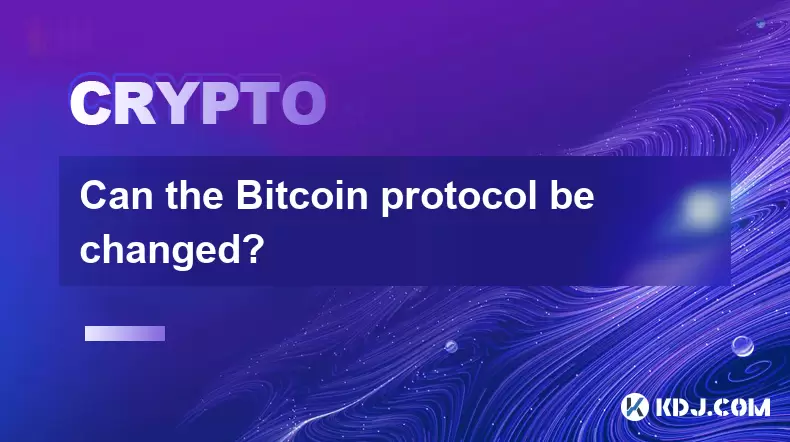-
 Bitcoin
Bitcoin $116700
0.24% -
 Ethereum
Ethereum $3973
4.34% -
 XRP
XRP $3.283
7.68% -
 Tether USDt
Tether USDt $1.000
0.01% -
 BNB
BNB $789.8
2.27% -
 Solana
Solana $176.2
3.31% -
 USDC
USDC $0.9999
0.00% -
 Dogecoin
Dogecoin $0.2238
5.14% -
 TRON
TRON $0.3389
-0.51% -
 Cardano
Cardano $0.7907
4.03% -
 Stellar
Stellar $0.4527
10.02% -
 Hyperliquid
Hyperliquid $41.07
4.27% -
 Sui
Sui $3.794
1.77% -
 Chainlink
Chainlink $19.49
10.40% -
 Bitcoin Cash
Bitcoin Cash $580.9
0.74% -
 Hedera
Hedera $0.2617
4.32% -
 Avalanche
Avalanche $23.41
3.67% -
 Ethena USDe
Ethena USDe $1.001
-0.03% -
 Litecoin
Litecoin $122.4
1.38% -
 Toncoin
Toncoin $3.364
1.49% -
 UNUS SED LEO
UNUS SED LEO $8.988
0.37% -
 Shiba Inu
Shiba Inu $0.00001295
2.82% -
 Uniswap
Uniswap $10.62
5.75% -
 Polkadot
Polkadot $3.922
4.46% -
 Dai
Dai $1.000
0.01% -
 Bitget Token
Bitget Token $4.494
2.15% -
 Monero
Monero $268.0
-1.30% -
 Cronos
Cronos $0.1523
3.68% -
 Pepe
Pepe $0.00001127
4.43% -
 Aave
Aave $285.4
4.85%
Bitcoin trading strategy
To maximize profits and minimize risks in Bitcoin trading, it's crucial to develop a sound strategy involving technical analysis, risk management, and trade execution, including both long and short positions.
Oct 09, 2024 at 08:48 am

Bitcoin Trading Strategy: A Step-by-Step Guide for Success
In the world of cryptocurrency, Bitcoin stands out as one of the most popular and valuable digital assets. Trading Bitcoin can be a lucrative venture, but it's essential to have a solid trading strategy in place to maximize profits and minimize risks. Here's a comprehensive guide to help you develop an effective Bitcoin trading strategy:
Step 1: Technical Analysis
- Study price charts to identify trends, patterns, and support and resistance levels.
- Use technical indicators such as moving averages, Bollinger Bands, and Relative Strength Index (RSI) to analyze market conditions.
- Determine the direction of the trend based on the technical analysis.
Step 2: Risk Management
- Set a risk tolerance level that aligns with your financial situation.
- Decide on a maximum amount you're willing to lose per trade.
- Use stop-loss orders to automatically sell your Bitcoin if it falls below a predetermined price.
Step 3: Trading Positions
Long Positions (Buy Orders):
- Enter a long position when the technical analysis indicates an upward trend.
- Set a target price at which you will sell the Bitcoin for a profit.
Short Positions (Sell Orders):
- Enter a short position when the technical analysis indicates a downward trend.
- Borrow Bitcoin and sell it, hoping to buy it back later at a lower price.
Step 4: Order Types
Market Orders:
- Execute immediately at the current market price.
Limit Orders:
- Place an order to buy or sell Bitcoin at a specific price.
Stop Orders:
- Trigger a market order if the price reaches a predetermined level.
Step 5: Trade Execution
- Use a cryptocurrency exchange to execute your trades.
- Monitor the market closely and adjust your positions as needed.
- Take profits when your target price is reached and cut losses if the trade goes against you.
Step 6: Strategy Evaluation
- Regularly review your trading strategy and make adjustments based on market conditions.
- Analyze your performance, identify areas for improvement, and refine your approach.
Advanced Trading Strategies
- Scalping: Taking small profits over short periods by utilizing rapid price movements.
- Day Trading: Buying and selling Bitcoin within a single trading day without holding it overnight.
- Swing Trading: Holding Bitcoin for a few days to weeks, targeting larger price movements.
- Arbitrage: Exploiting price differences between different exchanges to make quick profits.
Conclusion
Developing a successful Bitcoin trading strategy requires a combination of technical analysis, risk management, and execution. By following the steps outlined above, you can create a personalized strategy that aligns with your investment goals and risk tolerance. However, it's important to note that trading Bitcoin involves significant risks. Always conduct thorough research, understand the market dynamics, and never invest more than you can afford to lose.
Disclaimer:info@kdj.com
The information provided is not trading advice. kdj.com does not assume any responsibility for any investments made based on the information provided in this article. Cryptocurrencies are highly volatile and it is highly recommended that you invest with caution after thorough research!
If you believe that the content used on this website infringes your copyright, please contact us immediately (info@kdj.com) and we will delete it promptly.
- Bitcoin, Litecoin, and Avalanche: Decoding the Crypto Buzz in the Big Apple
- 2025-08-09 00:30:12
- Pengu Takes Flight: Can This Solana Meme Coin Conquer the Top 3?
- 2025-08-09 00:50:13
- Ethereum and Shiba Inu: Navigating the Bull Move
- 2025-08-09 00:35:12
- Navigating the Crypto Market in 2025: Smart Decisions for Meme Coin Investing
- 2025-08-09 00:55:55
- Punisher Coin: The Altcoin Ready to Punish Your Portfolio with Gains?
- 2025-08-08 22:50:16
- Mutuum Finance, Bitcoin Whales, and Binance: Decoding the Crypto Currents
- 2025-08-08 22:30:11
Related knowledge

Can the Bitcoin protocol be changed?
Aug 07,2025 at 01:16pm
Understanding the Bitcoin ProtocolThe Bitcoin protocol is the foundational set of rules that govern how the Bitcoin network operates. It defines every...

How are Bitcoin transactions verified?
Aug 08,2025 at 06:57am
Understanding Bitcoin Transaction VerificationBitcoin transactions are verified through a decentralized network of nodes and miners that ensure the le...

How does decentralization make Bitcoin secure?
Aug 08,2025 at 09:35am
Understanding Decentralization in BitcoinDecentralization is a foundational principle of Bitcoin's architecture and plays a critical role in its secur...

What are some common misconceptions about Bitcoin?
Aug 07,2025 at 07:22pm
Bitcoin is Just Like Regular MoneyA widespread misconception is that Bitcoin functions identically to traditional fiat currencies like the US dollar o...

What is the role of nodes in the Bitcoin network?
Aug 08,2025 at 04:14pm
Understanding the Function of Nodes in the Bitcoin NetworkNodes are fundamental components of the Bitcoin network, serving as the backbone that ensure...

Is Bitcoin a solution for inflation?
Aug 08,2025 at 04:57am
Understanding Inflation and Its Impact on Traditional CurrenciesInflation refers to the sustained increase in the price of goods and services over tim...

Can the Bitcoin protocol be changed?
Aug 07,2025 at 01:16pm
Understanding the Bitcoin ProtocolThe Bitcoin protocol is the foundational set of rules that govern how the Bitcoin network operates. It defines every...

How are Bitcoin transactions verified?
Aug 08,2025 at 06:57am
Understanding Bitcoin Transaction VerificationBitcoin transactions are verified through a decentralized network of nodes and miners that ensure the le...

How does decentralization make Bitcoin secure?
Aug 08,2025 at 09:35am
Understanding Decentralization in BitcoinDecentralization is a foundational principle of Bitcoin's architecture and plays a critical role in its secur...

What are some common misconceptions about Bitcoin?
Aug 07,2025 at 07:22pm
Bitcoin is Just Like Regular MoneyA widespread misconception is that Bitcoin functions identically to traditional fiat currencies like the US dollar o...

What is the role of nodes in the Bitcoin network?
Aug 08,2025 at 04:14pm
Understanding the Function of Nodes in the Bitcoin NetworkNodes are fundamental components of the Bitcoin network, serving as the backbone that ensure...

Is Bitcoin a solution for inflation?
Aug 08,2025 at 04:57am
Understanding Inflation and Its Impact on Traditional CurrenciesInflation refers to the sustained increase in the price of goods and services over tim...
See all articles

























































































